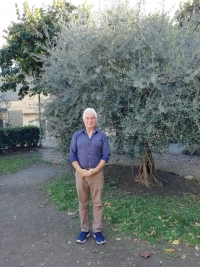I think the ones who like each should be together the most
Milan Haluška was born on February 5, 1953 in Prague. Here he went to primary school, studied mechanical engineering. He also made a living for a while, so that he could subsequently resort to the work of a journalist at ČTK and then at Technický týdeník. At the turn of the 1970s and 1980s, he and his girlfriend emigrated to Italy via the then Yugoslavia. At first he lived here in a refugee camp in Latina, later he worked as an editor and proof-reader of the exile magazine Listy. He later emigrated to the United States. He studied economics at the university and managed a company, which put various patent innovations into practice. After the Velvet Revolution of 1989, Milan returned to Czechoslovakia. He founded a company here for the production of chemical preparations. He sold it a few years later and moved to Malta, where he lives to this day.




